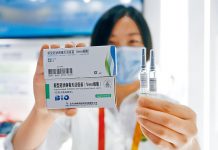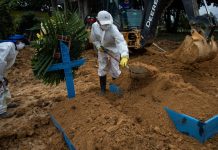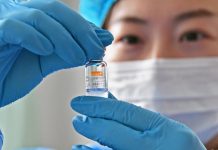
Great news for the pandemic: The drugmaker Moderna announced on Monday that its coronavirus vaccine was 94.5 percent effective, based on an early look at the results from its large, continuing study.
Pfizer and Moderna were the first to announce early data on large studies, but 10 other companies are also conducting big Phase 3 trials in a global race to produce a vaccine, including efforts in Australia, Britain, China, India and Russia. More than 50 other candidates are in earlier stages of testing.
Researchers test vaccines by inoculating some study participants and giving others placebos, and then watching the two groups to see how many people get sick. In Moderna’s study, 95 people contracted the coronavirus: five who were vaccinated, and 90 who received placebo shots of saltwater. Statistically, the difference between the two groups was highly significant. And of the 95 cases, 11 were severe — all in the placebo group.
An additional concern is that both vaccines must be stored and transported at low temperatures — minus 4 degrees Fahrenheit for Moderna, and minus 94 Fahrenheit for Pfizer — which could complicate their distribution, particularly to low-income areas in hot climates. Although both vaccines are made of mRNA, their temperature requirements differ because they use different, proprietary formulations of fat to encase and protect the mRNA, Ray Jordan, a Moderna spokesman, said.
Other coronavirus vaccines being developed will need only refrigeration. If handled improperly, vaccines can become inactive.
But on Monday, Moderna said researchers had found that its vaccine had a longer shelf life in the refrigerator than previously thought: 30 days, not seven. And it will last 12 hours at room temperature, the company said.
“This vaccine presents the opportunity of using doctors’ offices, clinics and pharmacies as vaccination sites,” said Dr. William Schaffner, an infectious disease expert at Vanderbilt University, adding that he would not be surprised, should both vaccines become available, if vaccination sites requested Moderna’s.
Both companies said they expected to apply within weeks to the F.D.A. for emergency authorization to begin vaccinating the public. In addition to the evidence for effectiveness, the companies must also submit two months of safety data on at least half of the participants.









